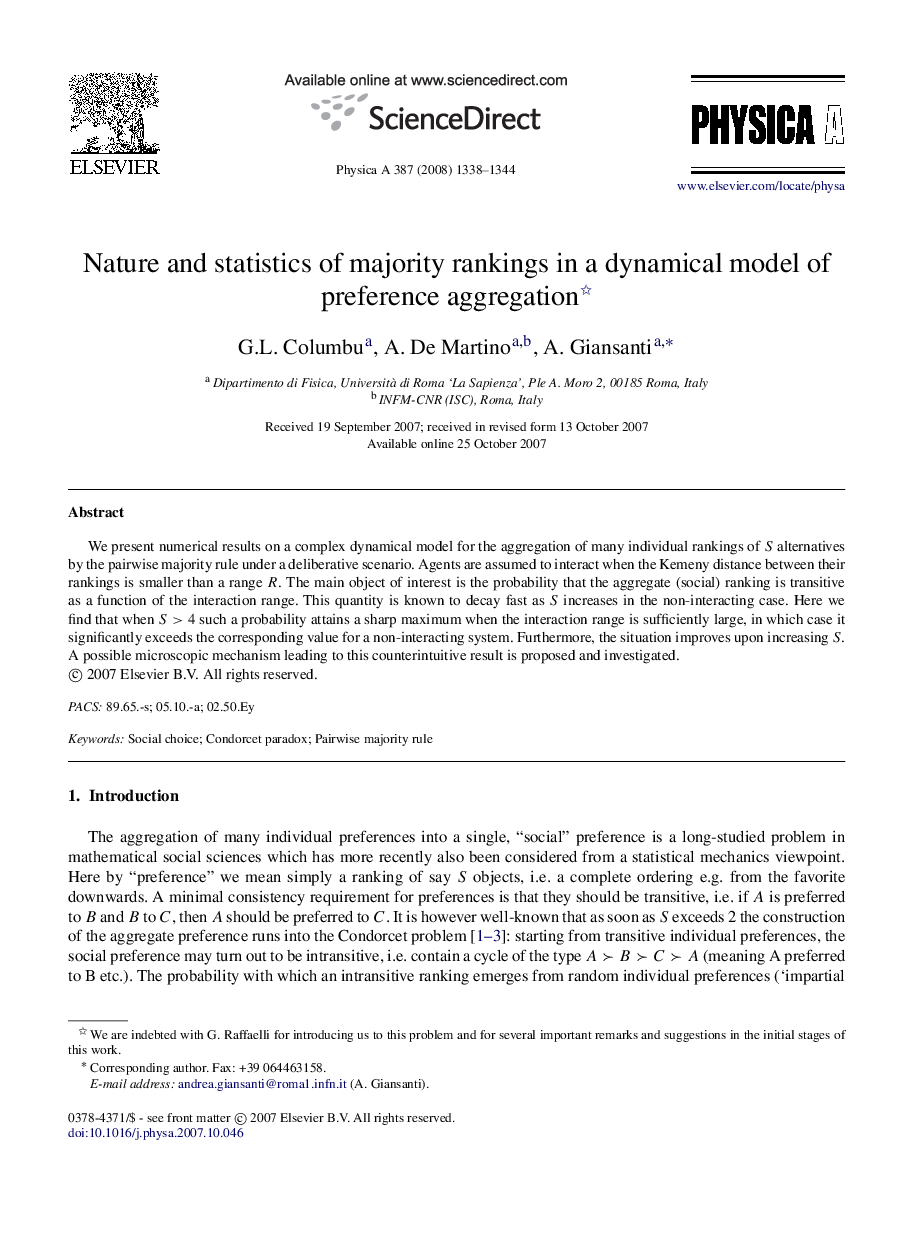| Article ID | Journal | Published Year | Pages | File Type |
|---|---|---|---|---|
| 979466 | Physica A: Statistical Mechanics and its Applications | 2008 | 7 Pages |
Abstract
We present numerical results on a complex dynamical model for the aggregation of many individual rankings of S alternatives by the pairwise majority rule under a deliberative scenario. Agents are assumed to interact when the Kemeny distance between their rankings is smaller than a range R. The main object of interest is the probability that the aggregate (social) ranking is transitive as a function of the interaction range. This quantity is known to decay fast as S increases in the non-interacting case. Here we find that when S>4 such a probability attains a sharp maximum when the interaction range is sufficiently large, in which case it significantly exceeds the corresponding value for a non-interacting system. Furthermore, the situation improves upon increasing S. A possible microscopic mechanism leading to this counterintuitive result is proposed and investigated.
Related Topics
Physical Sciences and Engineering
Mathematics
Mathematical Physics
Authors
G.L. Columbu, A. De Martino, A. Giansanti,
